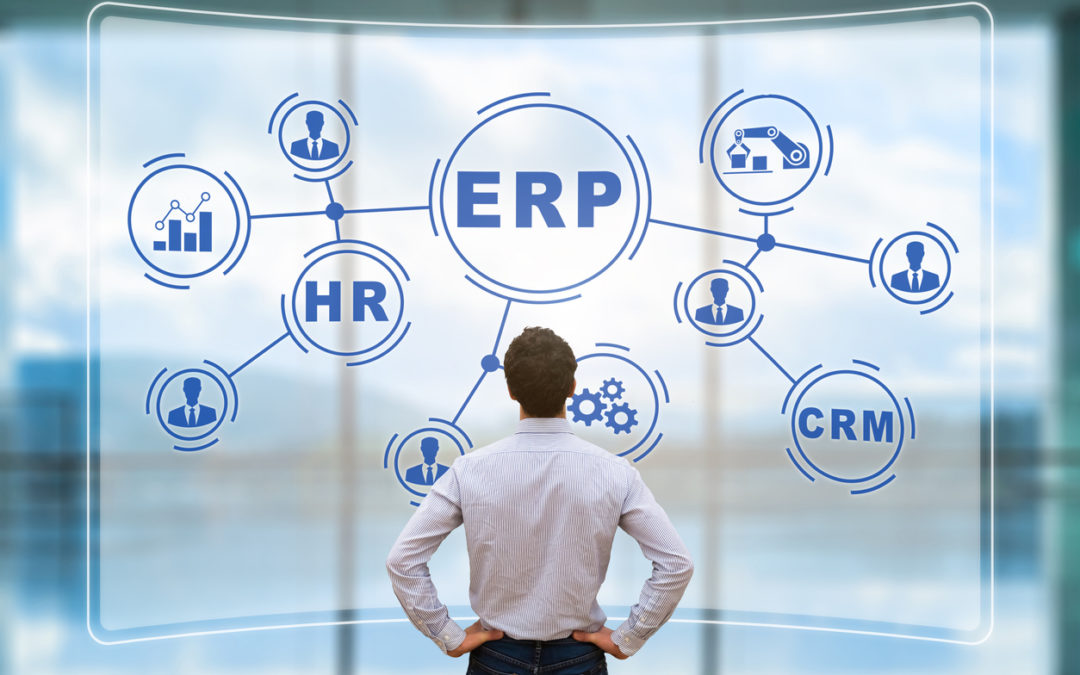
Software & Vendor Selection: Where to Look
The Best ERP Software Begins with the Best People
At every step, from software selection to ERP implementation, people are always your best resource.

Back-feed your software & vendor selection script with experiential feedback.
Now that the internal part of the work is done, you can start contacting people outside of your business to help with your software & vendor selection process. Before you call any vendors or developers, there is another step. Peer and expert help is a good idea, especially when considering new enterprise resource planning (ERP) software.
Where to look for feedback and ideas
Advice from industry peers and other groups will help you understand your software application options. Cloud-based ERP education is easy to come by, but it is important to have a trusted person explain the fine print. ERP solutions are often sold in a pure SaaS (Software as a Service) deployment, and this might not be the perfect fit for your business. You might be a small business looking for your first ERP software solution, or you might be a complex manufacturing company looking for the real-time flexibility of a cloud hosted ERP system.
We all have friends from previous jobs and alumni groups that we can lean on when making big business decisions. The internet is full of advice and much of it is useful. Chase answers, seek multiple views, and engage in a business process review if you’d like an assessment of where you’re at before adding anything new to the mix. An ERP vendor will give you one perspective, and those near and dear to your internal business processes might have different opinions.
Keep your search organized
Develop a questionnaire. This will help keep the members of your team unified when they begin gathering information. The questionnaire also keeps the questions useful. For example, the question “Did you like the software?” is not a very powerful question. Instead, use questions such as, “What was the primary requirement you wanted to satisfy?” Then you might follow up with a related question like, “In what specific ways did the software satisfy that requirement?” The final value of your questionnaire is that you will be able to compare and relate responses from a variety of sources to each other. You will also be able to develop a value scale that can allow you to have an objective scale to compare the responses and their value to your business.
Talk to people
When trying to choose ERP software, it is helpful to contact people from industry and trade groups. These will often be businesses that are similar to yours and their input can be useful in helping you make your decision. Use a little caution and avoid sharing where your next growth is expected and understand these businesses will be wary of sharing anything that might allow you to become a better competitor.
Your CPA and other resources that you have can benefit you as well when selecting software. Other clients that your CPA has might have been through a software search of their own. At this stage, you are not ready to take action yet and your CPA probably is ready and willing to act as a consultant helping in your search for a fee.
Use the internet for software & vendor selection research
The internet can provide examples of other businesses who have experience with software selection. Often you can find these businesses on the fifth page of your Google search and once you find them, even a quick phone call will frequently yield a person who directly participated in their selection and software implementation and has useful experiences to share. Many people are more than willing to help if you ask them.
Now take action
Once you have done your research, you might first decide to re-evaluate your requirement list. You might find some listed requirements to be of less value than originally considered or have found a point from one of your sources that should be added to your requirement list. Through this research, you probably learned of a software provider, previously unknown to you, that was highly recommended. You certainly learned new ways that others found that helped in their search or even helped their business operations after their implementation. You also learned of search actions others would have done differently if there were an opportunity to make their search again.
Now you can develop a list of only a few software providers or brands that likely will be beneficial to you. An internet search might list a thousand systems, which are too many to evaluate. Focus on your short list and begin contacting those few. The goods or services you offer will greatly benefit from new solution, whether you’re adding a third-party business intelligence platform or a new accounting software to your resource pool.
Remember that people are your best resources for ERP and more
Mid-sized manufacturing and distribution companies are especially vulnerable right now to supply chain management issues. Make sure you have the in-house human resources it takes to ensure that warehouses managed during a pandemic are restored to pre-crisis stability. If you need help with inventory management, enterprise risk management, cloud migration, or other critical business operations, EstesGroup offers you a one-stop-shop approach to operational optimization.








 If you asked your IT personnel what the advantages of implementing an Enterprise Resource Planning (ERP) system, in all likelihood, they’d tell you that it could be revolutionary or absolutely destructive depending on their past experiences. The key to making it revolutionary revolves around partnering with experienced
If you asked your IT personnel what the advantages of implementing an Enterprise Resource Planning (ERP) system, in all likelihood, they’d tell you that it could be revolutionary or absolutely destructive depending on their past experiences. The key to making it revolutionary revolves around partnering with experienced  Work is no longer just something that takes place in an office. Today, people are working while on vacation. They’re working from home. They’re working anywhere that life takes them. The Epicor ERP system is mobile-friendly, meaning that you and your employees are able to access important information and continue to contribute in even the most remote places in the world (so long as they have an internet connection, that is).
Work is no longer just something that takes place in an office. Today, people are working while on vacation. They’re working from home. They’re working anywhere that life takes them. The Epicor ERP system is mobile-friendly, meaning that you and your employees are able to access important information and continue to contribute in even the most remote places in the world (so long as they have an internet connection, that is).